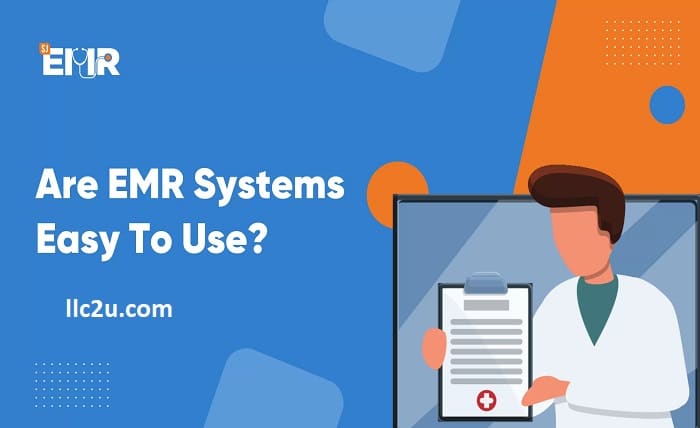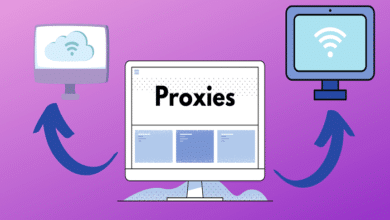Praxis EMR: Unpacking the Buzz – A Patient Review & Analysis

For every healthcare practice, selecting the appropriate electronic medical record (EMR) is essential. Even though Praxis EMR is frequently cited as a leading option, sorting through the deluge of internet reviews may be difficult. Is the praise, then, justified? Fasten your seatbelts as we explore the core of Praxis EMR’s reputation, analyzing user experiences, important functions, and any downsides.
What is Praxis EMR?
Dr. Richard Low, a family physician who was frustrated with the drawbacks and restrictions of template-based EMR systems, established Praxis EMR, an EMR program, in 1989. The Praxis EMR makes use of a type of artificial intelligence (AI) technology called concept processing, which learns from each user and generates unique documentation for every patient interaction. To assist users in practicing evidence-based medicine, Praxis EMR also has a clinical knowledge engine that offers clinical guidelines, alerts, reminders, and decision assistance tools. Family medicine, internal medicine, pediatrics, cardiology, dermatology, and other specialties are among the specializations that Praxis EMR covers and is tailored for small to medium-sized clinics.
What are the benefits of Praxis EMR?
According to the reviews of Praxis EMR users, some of the benefits of Praxis EMR are:
- Without the need for inflexible and tedious templates, it enables users to chart more quickly and easily. Users are free to choose their documentation style and convey their clinical reasoning and decision-making using everyday language.
- By preventing the mistakes, omissions, and inconsistencies that might arise from utilizing templates, it raises the caliber and precision of medical records. Along with notifications and reminders for drug safety, chronic illness management, and preventative care, users may also access the most recent clinical guidelines and recommendations.
- By adjusting to their preferences and processes and offering individualized feedback help, improve user pleasure and usability. To meet their needs and objectives, users may additionally alter the interface, reports, queries, and analytics.
- Because it eliminates the need for transcribing, coding, invoicing, and auditing, users save time and money. In addition, Praxis EMR users may interface the program with additional devices and applications, including practice management, billing, lab, radiology, e-prescribing, and more.
What are the drawbacks of Praxis EMR?
According to the reviews of Praxis EMR users, some of the drawbacks of Praxis EMR are:
- It has a challenging learning curve, particularly for users accustomed to EMR systems that employ templates. To train the system and understand how to utilize it efficiently, users must put in time and effort. To guarantee the system operates at peak efficiency and functionality, users must also update and maintain it regularly.
- Its compatibility and interoperability with other systems and standards, such as HL7, FHIR, C-CDA, and MIPS, are restricted. When transferring data and information with other providers, organizations, and entities, as well as when adhering to regulatory and quality criteria, users may run into problems or experience delays.
- It occasionally has errors and problems that might compromise the system’s speed, dependability, and security. Users may encounter issues, freezes, crashes, or data loss; in these cases, they may need to get help from the technical support staff.
How does Praxis EMR compare with other EMR software?
Several user satisfaction surveys and evaluations rank Praxis EMR as one of the top EMR programs available. Praxis EMR has received several honors and accolades, including the #1 EHR in User Satisfaction by AAFP and ACP, the #1 EHR in Innovation by Black Book Research, and the #1 EHR in User Satisfaction, User Recommended, and Usability by Software Advice. Additionally, Praxis EMR has a high Net Promoter Score (NPS), which gauges client happiness and loyalty.
Among the EMR programs with which Praxis EMR is competitive are:
Integrated practice management, revenue cycle management, patient engagement, and population health management solutions are all provided by AthenaOne, a cloud-based EMR software. With a broad network of partners and suppliers, AthenaOne offers data-driven insights and best practices to help users enhance productivity and results.
The cloud-based EMR program NextGen Office provides telemedicine, a patient portal, revenue cycle management, and integrated practice management features. Primary care, pediatrics, ophthalmology, and other specialties are among the many disciplines that NextGen Office offers. It is primarily intended for small to medium-sized practices.
Integrated practice management, revenue cycle management, population health management, patient engagement, and analytics capabilities are all provided by NextGen Enterprise, a cloud-based EMR software. Cardiology, orthopedics, gastroenterology, and other specialties are among the many disciplines that NextGen Enterprise covers. It is primarily intended for big, sophisticated practices.
How much does Praxis EMR cost?
The cloud-based version costs $259 per provider each month and includes hosting, upkeep, upgrades, backups, and support.
For the on-premise version, which requires customers to buy their gear, software, and support, there is a one-time license charge of $899 per provider.
For customers who would like to test the program before making a purchase, Praxis EMR also provides a free demo, a free trial, and a money-back guarantee.
Conclusion
The AI technology in Praxis EMR allows it to learn from its users and adjust to their preferences and work processes. The Praxis EMR promises to enhance the effectiveness and caliber of medical practice while being quicker, simpler, and more customized than template-based EMR solutions. Praxis EMR has won several accolades and recognitions and has garnered favorable feedback and ratings from both professionals and consumers. However, there are many disadvantages to Praxis EMR, including a challenging learning curve, restricted compatibility, and sporadic errors. Praxis EMR offers several specializations and is appropriate for small to medium-sized clinics. Praxis EMR promises a money-back guarantee, a free demo, and a free trial but does not reveal its cost.
FAQs:
1. How does Praxis EMR compare to other popular options? Each EMR has its strengths and weaknesses. Research top competitors like Athenahealth, Epic, and Cerner to understand their offerings.
2. What are the potential implementation costs involved? Contact Praxis directly for specific quotes based on your practice size and required features.
3. Does Praxis EMR offer HIPAA compliance training? Yes, they provide resources and support to ensure HIPAA compliance within your practice.
4. Can I integrate Praxis EMR with other software I use? Evaluate your desired integrations and discuss compatibility with Praxis during your assessment.
5. Where can I find more information and user reviews? Visit the Praxis EMR website, explore independent review platforms, and join healthcare professional online communities for additional insights.




